Slow GDP growth clouds outlook:Mobile technology is bringing banking to the continent’s unbanked, and is expected to help stimulate growth.
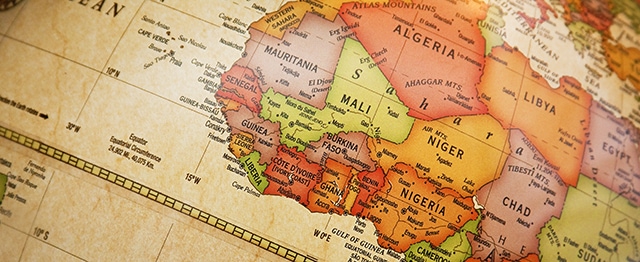
African banks enjoy strong financials for the most part, but slow GDP growth rates on the continent could hamper future lending as non-performing loans continue to rise.
Constantinos Kypreos, senior vice president at Moody’s Investors Service says, “Although African banks will maintain solid capital and local-currency liquidity buffers in 2018, macroeconomic conditions will remain difficult in a majority of African countries. Economic growth will remain below historical levels, while political uncertainty will dampen confidence and governments’ capacity for fiscal stimulus will be limited.”
African banks face the risk of macroeconomic contagion through their large holdings of government securities, he says. In addition, governments will have reduced capacity to support banks in case of need, while problem loans are expected to edge higher.
Moody’s says challenging economic conditions will most affect banks in South Africa, Kenya and Tunisia. Banks will fare better in Nigeria, Morocco and Egypt, the ratings agency says.
S&P Global says in its South African banking outlook for 2018 that the country still faces weak economic growth, but there are signs of positive political shifts. The election of Cyril Ramaphosa as the African National Congress’s next president has boosted consumer and business confidence.
“South African banks have been extending credit slowly and with increasing conservatism, while simultaneously building capital and loan loss provisions, thanks to the sector’s longstanding robust profitability,” S&P Global says.
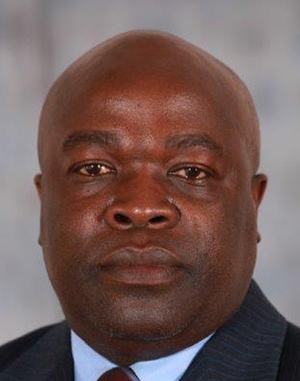
Peter Zimunya, CBZ Bank Acting CEO |
Banks across sub-Saharan Africa haven’t yet fully recovered from an exceptionally weak 2016 and remain risk-averse, according to Fitch Ratings. “High single-borrower concentrations, typical of the region, expose many banks to potentially sizable losses in the event of default,” Fitch says. Concentrated industry exposure is also a risk, Fitch adds.
Global Finance chose Standard Bank of South Africa as the Best Bank in Africa because of its strong financial performance in challenging conditions and its international capabilities. The group’s earnings climbed 14% last year. On a constant currency basis, headline earnings grew by 18%. The bank’s return on equity rose to 18% from 16.8% in 2016. Standard Bank is Africa’s largest lender by assets and has a presence in 20 countries on the continent. The bank raised more than $7 billion of debt for African clients, including corporations, from global markets in 2017.
The bank’s business in Africa regions outside of South Africa increased its contribution to group earnings to 28% in 2017 from 26% a year earlier, despite the impact of a strengthening rand.
“We have a relentless focus on three immediate priorities—to transform into a client-centered, digitally enabled and integrated universal financial-services organization,” Standard Bank said in announcing its 2017 earnings.
In addition to the overall regional award for Africa, Standard Bank (which also operates as Stanbic Bank) won country awards in South Africa, Botswana, Mauritius and Uganda. The bank said personal and business banking in South Africa delivered strong performance, with headline earnings up 11%. Mobile-banking transactions increased by 32%. Some 93% of the bank’s transactional accounts in South Africa have been migrated to the bank’s new core banking platform.
Global Financeselected Stanbic Bank Botswana as the Best Bank in Botswana due to its growing corporate- and investment-banking operations. Botswana has a well-developed financial sector with a stock exchange and an active bond market. The Botswana market is focused on mining, power and infrastructure. Stanbic also facilitates cross-border transactions and is one of the largest suppliers of foreign exchange to the market.
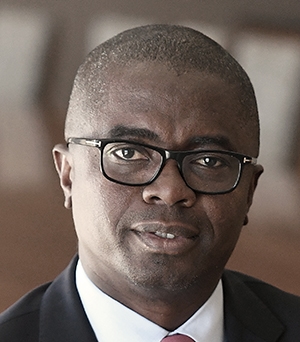
Samuel Minta, Stanbic Bank Botswana Acting CEO |
Samuel Minta, acting CEO of Stanbic Bank Botswana, says, “Two years into our three-year Road to Excellence strategy, we have driven strong internal efficiencies and capabilities to deliver stronger client experiences. This award affirms the voice of our clients and staff. Botswana is our home and we will continue to invest in driving the growth of our communities and clients.”
Standard Bank Mauritius is Global Finance’s choice for Best Bank in Mauritius because of its recent success in corporate and investment banking and wealth management. Analysts expect credit demand to accelerate in the rapidly developing island nation, due to an increase in public and private sector investment. Infrastructure, energy and tourism are attracting the biggest investments.
Another member of the Standard Bank group, Stanbic Bank Uganda is also a Best Bank country winner. The bank posted 5% earnings growth in 2017 by lowering its costs to offset a narrowing of its net interest margin as rates declined. The bank’s loans and advances grew by 8% in 2017 and resulted in a market share gain to 19%, from 17.8% a year earlier. Stanbic Bank Uganda’s assets grew by 17.6% as a result of continued strong growth in customer deposits.
French bank Societe Generale also has a major pan-African banking presence, with operations in 19 countries on the continent. Societe Generale Algerie, the leading private sector bank in Algeria, is Global Finance’s choice as Best Bank in Algeria. The bank was one of the first international banks to open a subsidiary in Algeria. The visit by French President Emmanuel Macron last December could result in closer relations. Macron called for a more open Algerian economy and mutual investment.
Societe Generale Benin has developed a network of 16 branches in Benin since it first entered the country in 2003. The bank offers retail banking as well as corporate and investment banking and global transaction banking.
Societe Generale’s subsidiary in Côte d’Ivoire, SGBCI, has a leading banking market share and is Global Finance’s choice for Best Bank in Ivory Coast. SGBCI has a 22% share of the country’s lending market and 23% of its deposits. Its return on equity last year was 16.1%.
Societe Generale de Banques au Senegal (SGBS) is Best Bank in Senegal in recognition of its efforts at financial inclusion, as well as its lead in investment banking. The bank has been operating in Senegal since 1962 and has 43 branches in the West African country. It is one of the leading banks for international trade finance and foreign exchange.
In Guinea, Societe Generale de Banques en Guinee won for its support of major corporations that operate in key sectors of the economy, such as mining, telecommunications and oil distribution. Societe Generale is one of the country’s leading banks, with 21 branches and a market share of 20%.
Another pan-African banking leader, Ecobank, took the Best Bank awards in Burkina Faso, Gambia and Togo. Ecobank’s pan-African platform, with 1,268 branches in 36 countries, is the biggest of any bank.
In Burkina Faso, Ecobank focuses on providing loans to cotton growers and small and medium-size enterprises (SMEs). Ecobank Burkina has acquired Sofipe, a microfinance institution serving 37,000 customers. Ecobank offers mobile banking in many African countries through an arrangement with telecom Orange.
Ecobank Gambia pioneered agency banking in Gambia in March 2018. Acting in partnership with a number of retail agencies across the country, Ecobank has been able to extend services to remote areas of Gambia. The agency banking system enables Ecobank’s customers to deposit or withdraw funds from its accredited agents in their communities.
Josephine Anan-Ankomah, managing director of Ecobank Gambia, says, “Within a space of 10 years, Ecobank Gambia has become a household name and well-respected brand in Gambia. The bank posted a strong performance in 2017, despite the difficult operating environment, which followed the political impasse. We closed the year as the most profitable and second-largest bank in the country.”
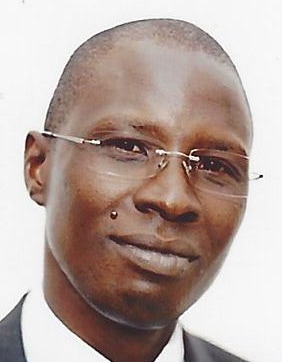
Mamady Diakité, Ecobank Togo Managing Director |
Togo is home to Ecobank Transnational, the holding company of the Ecobank Group, as well as Ecobank Togo, based in Lomé, which has 24 branches and a market share of 25%. In Togo and elsewhere, Ecobank Omni is a platform offering a suite of online cash-management solutions for corporate clients.
Mamady Diakité, managing director of Ecobank Togo, says: “We are honored with this award, which is the result of the efforts of men and women constantly working throughout the entire Ecobank group to offer innovative, accessible and reliable financial solutions to our valued customers. Launching the Ecobank Mobile app in April last year was one of a kind in Togo, where we strive for financial inclusion and a positive customer experience.”
Kinshasa-based Rawbank is Global Finance’s selection as the Best Bank in DR Congo because of its sound financials and capital buffer. Rawbank is the biggest bank by assets in DR Congo and is backed by Groupe Rawji. Rawbank has 96 branches and mini-branches. The bank’s Lady’s First program promotes female entrepreneurship and helps women gain business management skills.
In the Horn of Africa, Red Sea Trade and Industry Bank, or BCIMR according to its French initials, is winner of the Best Bank award in Djibouti. BCIMR is a 51%-owned subsidiary of BRED Banque Populaire of France. BCIMR has a market share of 50% of loans in Djibouti, which is strategically located where the Red Sea meets the Gulf of Aden.
Commercial Bank of Ethiopia (CBE) is Global Finance’s choice for Best Bank in Ethiopia because of its strong market share. CBE, the country’s largest bank, has more than 1,160 branches and 67% of the country’s bank deposits. CBE increased its banking clout in 2016 with its merger with Construction and Business Bank of Ethiopia, another government-owned bank.
Elsewhere in East Africa, Equity Bank is our choice for Best Bank in Kenya. The bank’s parent, Equity Group Holdings, doubled its profit growth last year, with big gains in foreign exchange and trade finance. In addition to Kenya, the bank operates in Uganda, Tanzania, Rwanda, South Sudan and DR Congo.
In 2016, Kenya put a cap on commercial lending rates at four percentage points above the central bank rate, and set a minimum deposit rate. James Mwangi, Equity Bank’s CEO and managing director, says the rate cap is locking small borrowers out of the credit market and is taking a large toll on Kenya’s economy.
CRDB Bank is the leading bank in Tanzania, one of the fastest-growing economies in East Africa. This year’s real GDP growth is expected to be about 6.5%. The former Cooperative Rural Development Bank, with some 255 branches, is Global Finance’s selection as Best Bank in Tanzania. Last year, when the Tanzanian banking sector was challenged with tightening liquidity, CRDB Bank managed to lower its non-performing loans.
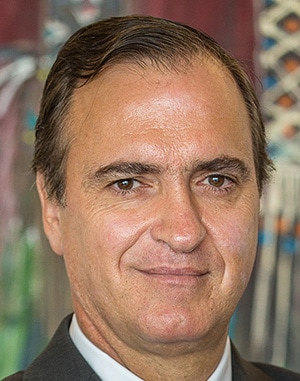
Jose Reino da Costa, Millennium bim CEO |
Millennium bim is the winner of the Best Bank in Mozambique award from Global Finance due to its return on average equity of 23.9% last year in a challenging economic environment. The bank’s deposits rose by 23% and its net interest income by 29%.
“This award reinforces our commitment to the economic and financial development of Mozambique,” says Jose Reino da Costa, vice chairman and CEO of Millennium bim. “It also recognizes our entire team’s dedication on a daily basis to satisfying our customers’ needs and working on finding new solutions to meet their expectations,” he says.
Millennium bim is one of Mozambique’s largest banks and is majority owned by Portugal’s Millennium bcp. The bank has a network of 190 branches in Mozambique.
In neighboring Malawi, Global Finance’s choice for Best Bank is National Bank of Malawi, the nation’s largest commercial bank, because of its 15% rise in earnings last year and its focus on lending to SMEs. As the country’s inflation rate dropped from 20% to 7% last year, the central bank lowered its policy rate three times. Malawi’s rain-fed agricultural output rose on more favorable weather.
In West Africa, Nigeria-based Zenith Bank won Best Bank honors in Ghana and Sierra Leone. The bank opened a new headquarters building in Accra, Ghana, last December. The country’s president, Nana Akufo-Addo, commended the bank for its contribution to the development of Ghana’s financial sector. The bank says it is open for acquisition talks with any commercial bank that is having difficulty in meeting the country’s new capital levels. In Sierra Leone, Zenith Bank is helping the country to recover from last year’s landslides that killed more than 1,100 people. The parent company’s earnings were strong, rising by 47% last year.
First Bank of Nigeria, the country’s largest bank, is Global Finance’s choice for Best Bank in Nigeria because of its growth in earnings in a weak economy. Nigeria slowly recovered from 2016’s recession last year, with real GDP growth of 0.8%. The recovery is expected to gain momentum in 2018, with growth projected at 2.6%.
First Bank has 745 branches and agencies and has operated in Nigeria since 1894. The bank’s net interest income rose by more than 25% in the first nine months of last year, even as loans outstanding declined by 1.9%. The bank’s nine-month profits rose 7.8%.
Homegrown in rural Cameroon, Afriland First Bank has evolved from a savings society to a full-service bank with 40 branches, and is Global Finance’s choice for Best Bank in Cameroon. Last year, Afriland acquired First International Bank, one of the largest banks in DR Congo. Afriland also has subsidiaries in Equatorial Guinea, Guinea, Liberia, South Sudan, Sao Tome and Principe, Benin and Zambia.
The Bank of Africa Group has operations in 18 sub-Saharan African countries, plus a network in France. Global Finance selected Bank of Africa banks as country winners in Madagascar and Mali. Bank of Africa Group is majority owned by BMCE Bank in Morocco. BOA-Madagascar has 88 branches and two business centers. The bank has a market share of about 33%.
Bank of Africa-Mali was the first bank in the BOA Group when it opened in 1982. It now has 62 branches and moved into its new headquarters building in the capital city of Bamako in February.
Attijariwafa bank, which is 48% owned by the Moroccan royal family holding SNI, is Global Finance’s choice for Best Bank in Morocco in light of its extensive regional influence and strong financials. Altogether it operates in 26 countries, with a network of 4,306 branches in Europe, the Middle East and Africa. Last year, Attijariwafa bank completed the purchase of Barclays Bank Egypt, which became Attijariwafa bank Egypt. The group’s earnings rose by 13.3% in 2017.
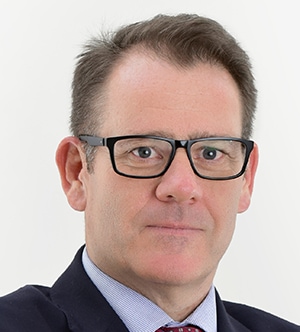
Robin Bairstow, I&M Bank Managing Director |
In Tunisia, Banque Internationale Arabe de Tunisie isGlobal Finance’schoice as Best Bank. BIAT, the country’s largest private-sector bank, partnered with Endeavor, a non-profit organization that mentors entrepreneurs, to launch Endeavor Tunisia, which will back companies that have passed the start-up phase and demonstrate potential for rapid expansion. BIAT itself has been expanding and now has a network of 203 branches across Tunisia.
I&M Bank Rwanda continues to perform well and is Global Finance’s selection as the Best Bank in Rwanda. Its non-performing loan ratio fell to 2.6% last year, down from 5.6% in 2015, and its assets have grown at a compound annual rate of 20% in the past five years. The bank’s return on equity was 19.3% in the nine months through September 2017. I&M Group also has operations in Kenya, Mauritius and Tanzania.
Robin Bairstow, managing director of I&M Bank Rwanda, says, “The remarkable success and market dominance that the bank has consistently achieved can be attributed to its long history with Rwanda’s economy and a clear strategic business outlook that keeps an eye on global business practices and technological trends. This information is then used to respond to clients’ needs in a timely and adequate manner.”
Barclays Bank Zambia won the Best Bank award for Zambia because of its 61% increase in headline earnings in 2017, due to its efficient cost and impairment management. The bank has been operating in Zambia for 100 years and has been rapidly introducing new digital initiatives in recent years. It also continues to be a strong supporter of SMEs, as well as agriculture, in line with the government’s diversification agenda.
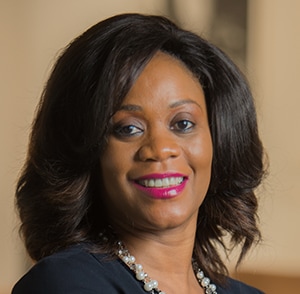
Mizinga Melu, Barclays Bank Zambia CEO |
In Zimbabwe, CBZ Bank managed a 16.8% rise in profits last year, despite the fragile economy and a sharp rise in non-performing loans. The bank, the country’s largest, processed about one-third of Zimbabwe’s banking transactions in 2017. The country’s economy could grow as much as 6% this year, as President Emmerson Mnangagwa’s government pursues economic reforms to attract foreign investment. Former President Robert Mugabe was removed in a de facto military coup last November.
Peter Zimunya, acting CEO of CBZ Bank, says, “The bank offers a diverse range of products and services, with an impeccable record of designing and providing tailor-made financial solutions for all categories of clients. CBZ offers customer convenience and satisfaction by providing innovative products using state-of-the-art technology.”
First National Bank of Namibia produced a return on average equity of 22.9% last year, despite weakness in the country’s key mining industry as a result of low uranium prices. The Namibian economy shrank by 0.6% in 2017 and is expected to recover slowly this year. Namibia also accounts for nearly one third of the world’s output of diamonds. First National Bank sustained an increase in impairments and a rising cost of funding.
In neighboring Angola, Banco de Fomento Angola (BFA) is Global Finance’s choice for Best Bank because of its rising earnings in the face of the oil-based economy’s weak showing last year. BFA’s 2017 earnings rose 12.1% to $416 million. Since 2017, the bank’s majority shareholder has been Unitel, Angola’s largest telecom. BFA’s customer base grew by 11% last year to more than 1.7 million.
Best Banks In Africa 2018
Regional Winner – Standard Bank Group
| Country | Name |
|---|---|
| Algeria |
Societe Generale Algeria |
| Angola |
Banco de Fomento Angola (BFA) |
| Benin |
Societe Generale Benin |
| Botswana |
Stanbic Bank Botswana |
| Burkina Faso |
Ecobank Burkina Faso |
|
Cameroon |
Afriland First Bank |
|
Cote d’Ivoire |
SGBCI |
|
DR Congo |
Rawbank |
|
Djibouti |
BCIMR |
|
Ethiopia |
Commercial Bank of Ethiopia |
|
Gambia |
Ecobank Gambia |
|
Ghana |
Zenith Bank Ghana |
|
Guinea |
Societe Generale de Banques enGuinee |
|
Kenya |
Equity Bank |
|
Madagascar |
Bank of Africa Madagascar |
|
Malawi |
National Bank of Malawi |
|
Mali |
Bank of Africa |
|
Mauritius |
Standard Bank Mauritius |
|
Morocco |
Attijariwafa Bank |
|
Mozambique |
Millennium bim |
|
Namibia |
First National Bank of Namibia |
|
Nigeria |
First Bank of Nigeria |
| Rwanda |
I&M Bank Rwanda |
| Senegal |
Societe Generale de Banques au Senegal |
|
Sierra Leone |
Zenith Bank |
| South Africa |
Standard Bank |
|
Tanzania |
CRDB Bank |
| Togo |
Ecobank Togo |
| Tunisia |
Banque Internationale Arabe deTunisie |
| Uganda |
Stanbic Bank Uganda |
| Zambia |
Barclays Bank Zambia |
|
Zimbabwe |
CBZ Bank |



